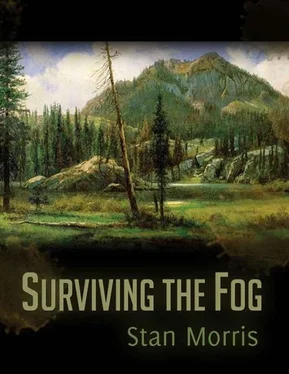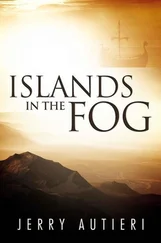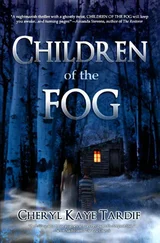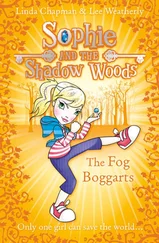“I pried the turquoise out of my belt buckle,” he answered proudly. “Eric had a couple of itty bitty alligator clips that he let me have. Hector helped me bend the teeth over, so they wouldn’t hurt your ears. Mike let me have some tiny screws that he found in his tool chest.”
For a moment, Gabby was speechless. Then right in front of everybody, she took Tyler’s face between her hands, and she kissed him right on the mouth. No tongue, of course. When she finished, Tyler sucked in a breath, red faced but pleased. Mike had no trouble from them for the rest of the winter.
“I wish someone would make me a present like that,” grumbled Desi to Yuie, as she glanced sideways at her boyfriend.
“Don’t worry, Sweetheart,” John assured her. “I was already thinking of making you a Mr. Potato Head. We still have plenty of potatoes.” Desi sighed.
Yuie giggled, and then she asked Desi, “Do you think that Mike would have told the Spears to give Tyler a real beating?”
“What do you think?” Desi replied.
Yuie was troubled. “I’m just not sure anymore,” she said.
After several months of living in the Lodge, some of the teenagers began to emit an unpleasant smell. One day, Mike got a whiff of a boy walking by. He stopped him, and he demanded to know when the boy had last washed himself in the washroom.
“It’s cold in there, Chief,” the boy complained. “And whenever it gets a little warm, it stinks in there.”
Mike was unmoved. He ordered everyone to wash their body at least once every three days. He endured a lot of grumbling about that order.
When March rolled around, Mike and the Council took stock of their supplies. There was a general consensus that they had done better than they had expected. They had carefully rationed the meat from their venison, rabbits, and birds, and had encouraged everyone to eat the vegetables. They had made lemonade once a week, so that everyone could drink a small glass of the juice. The pickles and beets had lasted, but the bread and rolls were almost gone. Still, by the middle of April they would start running out of food.
“We’ll have to get into the forest by then, in spite of the snow,” said Mike. “Hector, if you can power up one of the big machines, you might get through the snow to Mrs. Brown’s house. She said that she would try to make bread for us during the winter. Maybe you can catch some trout, and maybe we can get some real milk. Besides that, I would like to know how our people are doing. Jean, see if you can find some of the plants that you have been teaching us about. Jacob, what do you think?”
“I’ll go look. Mrs. Brown said that there were more deer than ever last year. If they stayed alive, I’ll find them,” Jacob replied.
Later Jacob came to Mike privately. “Chief?” Jacob looked around to see if anyone could hear him.
“Yes, Jacob?” Mike said.
“I’ve been meaning to tell you something, but I wasn’t sure if I should say anything yet. You remember the last time we dumped the Porta Pottys? Well, the others didn’t say anything, but I think the Fog was lower down than it was the first time I saw it.”
Stunned Mike stared at Jacob. “Are you sure?”
“Well, not really,” Jacob said. “But I noticed a strip of brown grass running along the edge of the Fog. At first, it looked like the rest of the grass that had died from the frost, but then I noticed this strip had, like, a reddish goo on it. I didn’t say anything to the others, because I didn’t want to get everyone’s hopes up. But as soon as possible, we should check it out.”
“All right. Let’s just keep it between us for now,” Mike said.
There was plenty of snow on the ground, but the skies had cleared again, and there was a lot of sunshine in March. The solar heating system was working well, so the temperature in the Lodge was quite comfortable. One day, the temperature outside got up to seventy degrees. Everyone was allowed to go outside again without permission, but they were required to stay within the boundaries of the camp. Jacob chafed at this, but Mike was firm.
“A little while longer, please,” he said.
“You’re the Chief,” Jacob grumbled.
The next day it snowed, and the temperature plunged once again. It dropped down to five degrees that night. They endured three more days of intense cold outside, but, inside, the barrels and the fire kept it bearable. They had used only three quarters of their wood, so Mike allowed the fire to be built higher.
Then the skies lightened, and it turned warmer again. At first light on the fifteenth of March, Mike let Jacob go into the forest, after making Jacob swear that he would return at the first sign of a cloud and not later than sunset. Jacob was back by noon.
“I slipped and fell into a gulch,” he explained. “It was packed with snow. I fell through powder snow up to my armpits. Something stopped me. I think I was standing on a body. I think it was an animal.”
Mike sent Jean and Howard with ropes to help Jacob. By sunset, they had brought the body of a deer back to the Lodge.
“It’s a doe,” said Jacob with regret. Probably died in that big freeze we had.
“Do you think the meat is safe to eat?” Mike asked.
“I think so,” said Jean. “It must have frozen quickly and the stomach and intestines were not open. It will be gamey though. I’ll eat a very small portion to start. If I don’t get sick or have diarrhea then it should be okay.”
The next day, they butchered the deer. They moved all of the remaining food into one freezer, and they packed the deer meat in snow until they were sure that it was safe to eat.
“Not bad, Jacob, for your first day out,” Mike said cheerfully.
“Blind luck,” Jacob muttered.
“I hope everyone at the Brown farm is also having some luck,” said Mike with a worried frown.
Chapter Eight
DAVIS BROWN FARM
At the Brown farm no one was hungry, or sick. There had been problems, but most of them were of a personal nature. Ralph and the other kids said goodbye to Hector with mixed emotions. The younger kids were excited to be at the farm. The girls, especially, had missed the comfort of an older woman. They had never met Mary Brown, but everyone who had met her, claimed that she was a very nice person. The twins were excited to see the horses and the cows, but they were leery of being under the direction of Ralph. In the past, he had been known to bully some of the younger boys.
Mary and her kids began by taking them on a tour of the farm. As they walked, Mary kept up a running commentary.
“We planted ten acres of wheat, four acres of feed and one acre of potatoes. And I always grow plenty of winter squash.”
Ralph looked at the fields that had been cut low to the ground. “You harvested the wheat and alfalfa by yourself?” he asked incredulously.
“Well, the combine did most of the work,” Mary said with a laugh. “I cut it after that rain luckily.”
“Where’s the wheat now?” Nathan asked.
“After fanning it, we put it in big plastic tubs with tight lids,” Mary replied. “Then we stored it in the sheds. If it has bugs in it, the cold will hold them down. The alfalfa is in the loft of the barn.”
“Can we make French fries with the potatoes?” Paige asked.
“You bet,” Mary answered. “I grow the Green Mountain potato variety. They don’t look as pretty as Russets but they taste sweeter. There are still a lot in the ground, and one of our biggest tasks will be to harvest the rest. Before this happened, I sold only my best produce at the stores down in the foothills, but now we need to harvest as much as we can for spring planting and to make bread and soup. Your friends at your camp will run out of food sometime in the spring. Our task will be to feed them as well as we can. I plan to make potato bread and potato soup for them. We’ll freeze some of that, put it in containers, and pack it in snow. But we’ll have plenty for French fries. I’ve got lard for that. I like to save the butter for my cookies.”
Читать дальше










